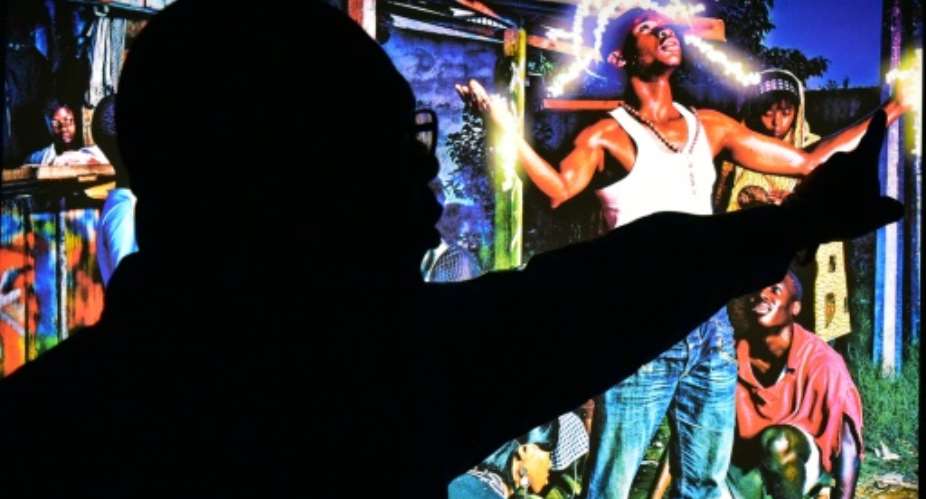Abidjan (AFP) - With works by artists from each of Africa's 54 countries, a show with a political twist titled "The Illuminated Africa" kicked off a tour of the continent highlighting the right to energy.
Half of Africa's estimated 1.1 billion people have no access to electricity while many of its biggest cities suffer daily power-cuts as dilapidated plants struggle to cope with growing demand.
The show whose first stop in the Ivorian city ends in June was staged "to mobilise the world to give Africa access to energy", said the head of African Artists for Development (AAD), Mathias Leridon.
"There is no future, no growth and no progress without electricity," said the group.
Many of the photographs, paintings, sculptures and videos in the show, which next heads to Senegal, were inspired by Africa's energy problems.
Chadian photographer Abdoulaye Barry for example portrays people in the darkness in a district of the capital, N'Djamena, "to show how difficult it is for them to walk at night."
"I walked around with my camera but it was totally dark there. The only lights I ever saw were car or motorbike headlights," he said.
Inspired by his country's quintessential coffins, Ghana artist Paa Joe produced one in the shape of an electric bulb, while Mauritian artist Amy Sow showed women's faces "because woman for me is light."
The show is also to go to London and Washington after touring Africa and was co-organised by the African Development Bank, which is working to shore up Africa's energy deficit by 2025.





 Togo leader Gnassingbe follows father's political playbook
Togo leader Gnassingbe follows father's political playbook
 NDC panics over Bawumia’s visit to Pope Francis
NDC panics over Bawumia’s visit to Pope Francis
 EC blasts Mahama over “false” claims on recruitment of Returning Officers
EC blasts Mahama over “false” claims on recruitment of Returning Officers
 Lands Minister gives ultimatum to Future Global Resources to revamp Prestea/Bogo...
Lands Minister gives ultimatum to Future Global Resources to revamp Prestea/Bogo...
 Wa Naa appeals to Akufo-Addo to audit state lands in Wa
Wa Naa appeals to Akufo-Addo to audit state lands in Wa
 Prof Opoku-Agyemang misunderstood Bawumia’s ‘driver mate’ analogy – Miracles Abo...
Prof Opoku-Agyemang misunderstood Bawumia’s ‘driver mate’ analogy – Miracles Abo...
 EU confident Ghana will not sign Anti-LGBTQI Bill
EU confident Ghana will not sign Anti-LGBTQI Bill
 Suspend implementation of Planting for Food and Jobs for 2024 - Stakeholders
Suspend implementation of Planting for Food and Jobs for 2024 - Stakeholders
 Tema West Municipal Assembly gets Ghana's First Female Aircraft Marshaller as ne...
Tema West Municipal Assembly gets Ghana's First Female Aircraft Marshaller as ne...
 Dumsor is affecting us double, release timetable – Disability Federation to ECG
Dumsor is affecting us double, release timetable – Disability Federation to ECG
